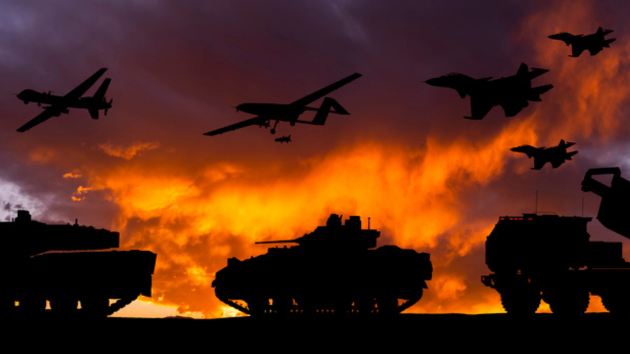
(LONDON) -- Kremlin spokesperson Dmitry Peskov told the Izvestia newspaper in an interview published Wednesday that Russia sees "no grounds for negotiations yet" to end Moscow's war on Ukraine.
President-elect Donald Trump's imminent return to the White House has revived speculation as to a possible deal to end Russia's full-scale invasion of its neighbor, which by the time Trump takes office again will be nearly three years old.
Russia still occupies around 20% of Ukraine and claims to have annexed four entire regions -- Donetsk, Luhansk, Kherson and Zaporizhzhia -- though it only partially occupies the areas it claims.
Russian President Vladimir Putin and his top officials have repeatedly said that Kyiv and its Western partners must accept the "new territorial realities" of Russian occupation, including of Crimea which was annexed in 2014.
Both Moscow and Kyiv have raised the prospect of renewed peace talks in recent weeks, though the two sides still appear far apart on key issues. Among them are the fate of the partially- or fully-occupied Ukrainian regions and Kyiv's ambition to join NATO.
Peskov told Izvestia that "many countries have declared the readiness to host" possible peace talks, among them Qatar.
"Indeed, the emirate has been a very active mediator in various areas, it has been quite effective," he added. "Besides, our bilateral relations with Qatar have been developing perfectly. We are grateful to all states, among them Qatar, for their goodwill."
Russian and Ukrainian leaders are spending the last months of President Joe Biden's time in office trying to gain leverage on the military and diplomatic fronts.
Former Fox News presenter Tucker Carlson announced on Wednesday that he had returned to Russia to interview Foreign Minister Sergei Lavrov. Carlson interviewed Putin in February and has been a fierce critic of the Biden administration's support for Ukraine.
Zelenskyy, meanwhile, has spent the last week receiving high-level allied visits in Kyiv. German Chancellor Olaf Scholz, European Council President Antonio Costa and EU foreign policy chief Kaja Kallas all travelled to the Ukrainian capital, with Scholz pledging $680 million in new military aid.
The U.S. also announced this week its latest tranche of military support worth some $750 million. Zelenskyy said such support is "exactly what we need."
Ukrainian forces need "significant reinforcement, particularly through weapons from our partners," the president said on Tuesday, amid difficult battlefield conditions.
Russian forces continue to advance in the east of Ukraine, while pressing their efforts to eject Ukrainian troops from Russia's western Kursk region where Kyiv's forces took up positions in a surprise August offensive.
Meanwhile, both sides continue long-range drone and missile attacks. Russia's strikes are focused on Ukraine's energy network, while Kyiv continues to target military sites and oil infrastructure facilities.
On Wednesday, Ukraine's air force reported 28 Russia drones launched into the country overnight, of which 22 were shot down and three went off course. Russia's Defense Ministry said its forces shot down 35 Ukrainian drones overnight.
Peace talk speculation looks set to continue through to Trump's inauguration on Jan. 20.
Oleksandr Merezhko -- a member of parliament representing Zelenskyy's party and the chair of the body's foreign affairs committee -- told ABC News it is possible that Russia may soften its inflexible negotiating position in 2025.
"Putin is afraid of Trump and considers him to be unpredictable and stronger than Biden," said Merezhko, who last month nominated the president-elect for next year's Nobel Peace Prize.
"At the moment, Putin is in a hurry to grab as much territory as he can and to get the Kursk region back," Merezhko said. "He is trying to improve his position before Trump coming to power and before the possible negotiations."
Copyright © 2024, ABC Audio. All rights reserved.

